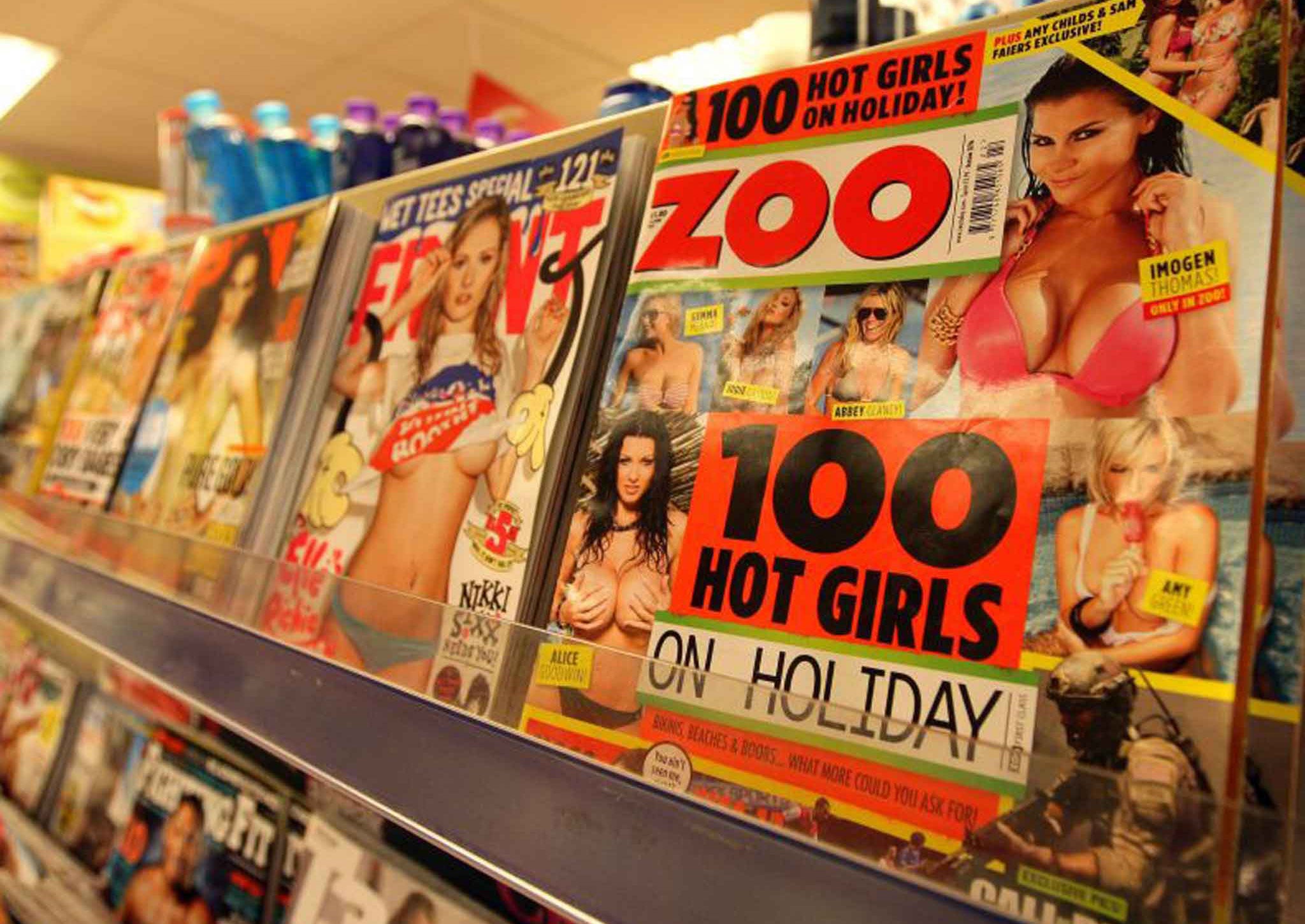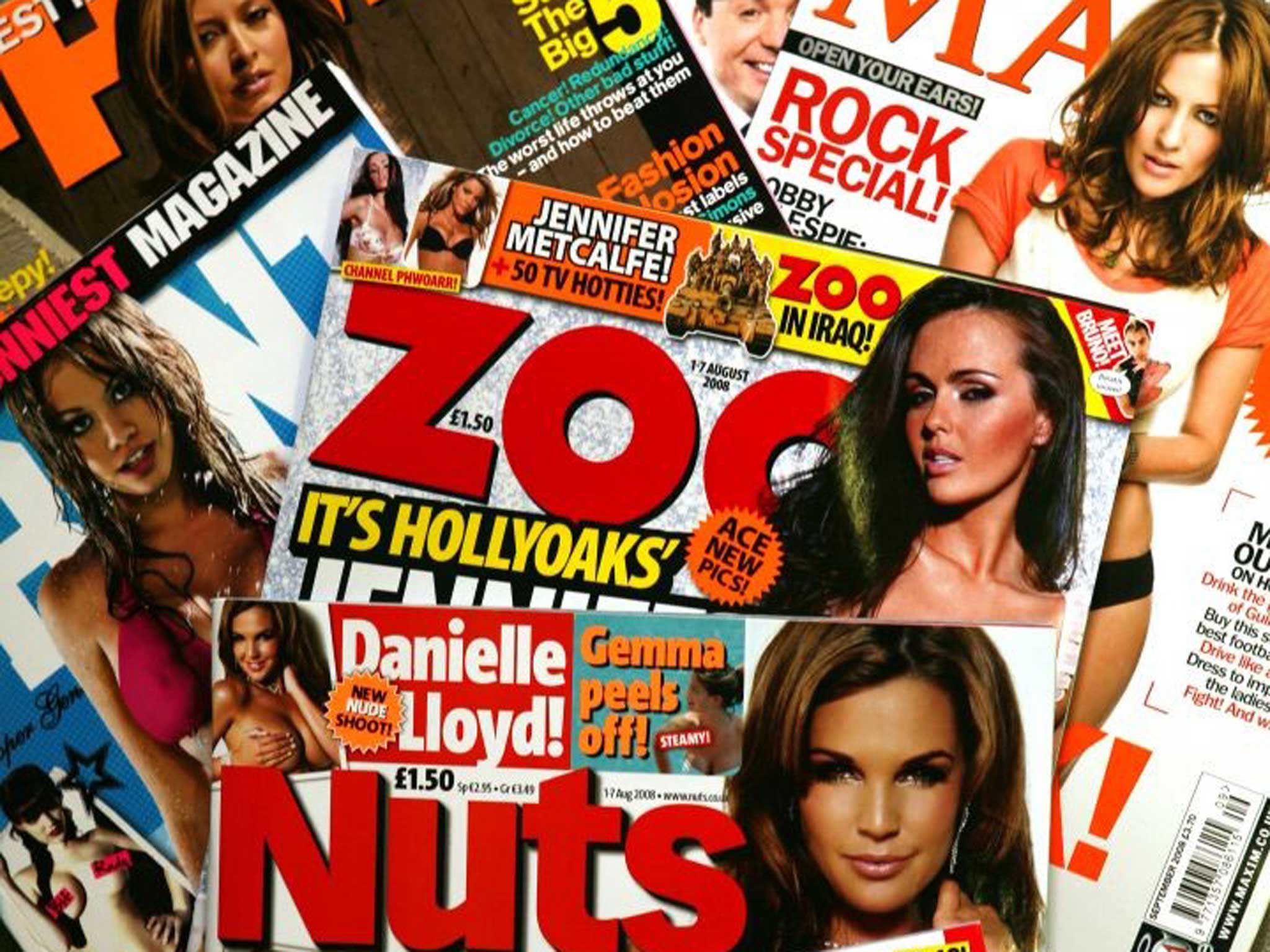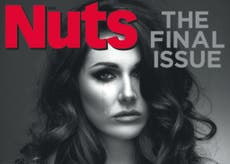The demise of lads' mags and the rise of feminism
That these misogynistic publications were allowed on our supermarket shelves at all was a national scandal

When the 'Noughties' are remembered, lads' mags will be among the cultural icons that tell an important story about the status of women at the time. Adorning supermarket shelves for well over a decade, magazines like Nuts, Zoo and Loaded epitomised an era that sneered at feminism and feminists. The degrading, pornified cover images of women - mockingly dubbed ironic and 'harmless fun' - became part of the daily visual landscape for the British public as they went about everyday errands like grocery shopping and paying for petrol. But as Loaded becomes the latest magazine to announce it is chucking sexually objectifying content on the bonfire of history, what will the demise of lads' mags tell us?
What's clear is that there will be a jostle for narratives. Because which aspects of this story we remember - or choose to forget - will help determine what happens next. Let's be clear, the toxic sexual objectification that has characterised lads' mags is rampant across mainstream culture, from advertising to newspapers to music videos. It's a damn site more convenient if the collapse of pornographic lads' mags is passed of as a simple tale of the impact of the internet. The readers have simply moved online, the claim goes. Nothing's really changed.
But there's more at play here than the internet. Even lads' mags publishers themselves are pointing out that the demise of this iconic set of publications represents more than just a shift in where 'lads' prefer to get their fix of sexist images. The director of Loaded's publisher, Spencer Hickson, has revealed the magazine is cutting out pornified content because, "we’ve got a distribution network that don’t want to stock dirty images, we’ve got a general groundswell of opinion that’s moved on from the Noughties... and the publication is less attractive both to readers and advertisers and partners if there’s a lack of consistency and negative association with it." (1) Similarly, Stuff magazine editor, Will Findlater, says his magazine has ditched sexually objectifying images of women from its covers because, "It’s the right thing to do in 2014, because attitudes have changed. I think the audience is ready for it, the market’s ready for it, and we don’t want anyone to feel alienated by our covers." "Really we have done this because we have seen there’s a demand for change." (2)
Over the past year that demand could be witnessed in spirited protests outside lads' mags retailers, on Twitter feeds and supermarket Facebook pages clogged with demands that they stop selling lads' mags, and in retail executives' inboxes flooded with messages from outraged customers. Together, thousands of activists of all ages, races and backgrounds managed to make this magazine genre - which has been in existence for well over a decade - front page headline news in the national press. Repeatedly.

Within four months of Object and UK Feminista launching the Lose the Lads' Mags campaign in 2013, the Co-op had withdrawn lads' mags from its 4000 stores while Tesco had age-restricted their sale and called on publishers to 'tone down' covers. It's clear the retailers' response to the campaign sent shock waves through the lads' mags sector, with editors popping up in TV and radio studios to protest. Since then, Nuts and Front magazine have folded, Stuff has dropped objectifying images of women from its covers and now Loaded has re-launched without its pornified content. Women and men around the country who risked ridicule and abuse to stand up against the toxic sexism of lads' mags turned the screw on publishers and drove the demand for change.
Read more:
Lose the Lads' Mags drew on years of activism against lads' mags by pioneering groups like Object, who won important concessions from retailers over the years about the way the magazines were displayed in shops. This campaigning has been underpinned by extensive research consistently showing what is frankly obvious from looking at lads' mags: that they incite sexism. Studies show portraying women as dehumanised sex objects fuels attitudes that underpin violence against women. The American Psychological Association have reported that viewing media which portrays women as sex objects leads people to become significantly more accepting of gender stereotyping, sexual harassment, interpersonal violence, and rape myths. Men are also more likely to treat women as sex objects after exposure to sexualised media. It's not rocket science. It is, however, a national scandal. These misogynistic publications have inhabited peoples' everyday public spaces for years, silently hammering home the message that treating women as sex objects is normal, mundane, acceptable. While lads' mags publishers have been reaping the profits from depicting women as nothing more than a sum of body parts, women and girls have been paying the price.
Now, the editor of Stuff magazine has declared, "We’re in a post-lads' mags era." Perhaps. But what's clear is that the changes we're witnessing weren't a foregone conclusion. They were hard fought for in the face of ardent opposition. The demise of lads' mags tells of a number of shifts taking place in 21st century Britain. And one of those is the rise of feminism. It tells us that activism works. That when we speak out together, rather than turn our heads, we can utterly transform the world around us.



.jpg?quality=75&width=230&auto=webp)
Join our commenting forum
Join thought-provoking conversations, follow other Independent readers and see their replies